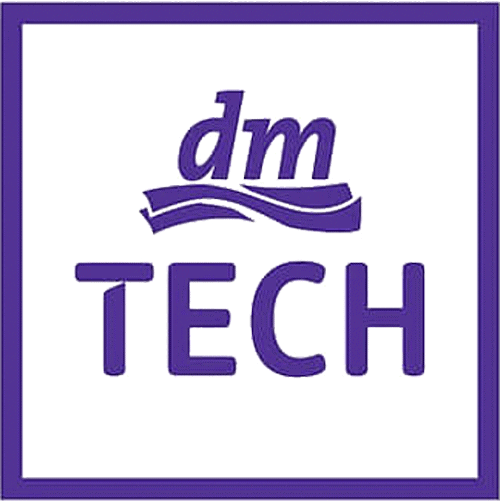In the next few years, many SAP customers will face the challenge of switching from their current SAP ERP system to the new S/4HANA. This will also bring many functional changes for the companies. Previous standard solutions will no longer be provided or will be immediately replaced by new ones. The same fate now befalls the reliable WM (Warehouse Management) module.
As soon as a customer was dependent on bin-managed inventory, SAP offered a proven solution with WM, which, however, will not be further developed with the introduction of EWM (Extended Warehouse Management) (OSS message 2270211 – S4TWL – Warehouse Management (WM)). Nevertheless, until now it was still possible to manage one’s stocks with bin accuracy, to work with SAP scanner applications or even to communicate with material flow computers.
SAP WM is finite - don't panic about the changeover!
With the introduction of S/4HANA, SAP has decided to establish EWM as a strategic solution for warehouse management and to phase out the old WM module. As soon as our customers start to deal with the topic of SAP S/4HANA, they quickly get to the topic of warehouse management and are unsure of what it now means for them as they move towards the new S/4 world with their old WM system.
Don’t panic! That’s what we are here for!
In the following sections, I would like to introduce you to the topic and take away the fear of a changeover.
Important deadlines for SAP WM customers
With the introduction of the SAP S/4HANA world, the dates for the discontinuation of maintenance for the WM module were also announced. For our customers, it is first important to know which time restrictions they have to deal with. Here is a short overview.
- Changeover deadlines for the ERP ECC system - end of 2027/2030SAP originally planned that support for ERP ECC 6.0 would end in December 2025. When it became clear that customers would need more time for their conversion to S/4HANA than SAP had planned, there was another postponement. Then, in February 2020, the vendor announced that customers would now be granted a deferral and that a conversion would not be necessary until 2027. If companies need maintenance beyond that, they can extend it to 2030 for a fee.
- Compatibility mode - end of 202For customers who would like to switch to S/4HANA early, but still use their settings from ERP ECC in the new system, SAP offers a compatibility mode. The customer has no restrictions. However, this form of use is only possible until the end of 2025. After that, a decision has to be made, which will be discussed in more detail later on. There is also an OSS note on this from SAP: 2269324 - Compatibility scope matrix for SAP S/4HANA
What does your warehouse strategy look like when converting to an S/4 system?
When our customers are considering a conversion to SAP S/4HANA, we always recommend that they also directly consider a warehouse strategy in the process.
Customers can decide which warehouse solution to use for each storage location. They do not have to choose one single way!
For customers who prefer an on-premise solution (no cloud) and already have WM in use today, the following options usually come into consideration:
- The customer will use the so-called Stock Room Management in the future to continue using the basic functionalities of WM.
- The company switches to an embedded EWM Basic, so that the warehouse management is also prepared for the future. There are no additional license fees for the use, as these are already covered with the S/4 license.
- The customer uses an embedded EWM Advanced to make his processes even deeper. This is where license fees would come into play.
- The customer outsources its warehouse management to a decentralized EWM and operates all warehouses on an external EWM system. License fees would also apply here.
- A mixture of all variants can also be used.
Consider all switchover options before falling into actionism
To make a decision, it helps to list the warehouses managed with SAP today and define the target image. Depending on the complexity of the warehouse, a decision should then be made. If the warehouse is less complex, then Stock Room Management could be the right solution. However, if an automated warehouse is in use, then external EWM would certainly be the better choice. In this context, we offer to support you in your individual decision making in a workshop.
Various terms such as Stock Room Management, embedded EWM, Basic and Advanced have already been mentioned. I would now like to go into these in more detail below.
Stock Room Management
If you interpret the dates mentioned above, you might think that the WM module will be discontinued by 2030 at the latest and that EWM will have to be used thereafter. But this is not the case!
Since the S/4HANA 1909 release, SAP offers an alternative to WM with Stock Room Management. However, Stock Room Management is more than an alternative. It is the WM module on an S/4HANA system!
Stock Room Management is technically based on the WM module, so it uses the same tables, customizing paths and transactions. However, Stock Room Management is only offered with technical limitations. The following functions are no longer usable:
- Task and Resource Management (LE-TRM)
- Additional logistics services, VAS (LE-WM-VAS)
- Yard Management (LE-YM)
- Cross Docking (LE-WM-CD)
- Wave Management (LE-WM-TFM-CP)
- Decentralized Warehouse Management (LE-WM-DWM)
- Warehouse Control Systems (WM-LSR)
Many customers wonder, “How do I know if I have this solution in place?” To find out, there are standard reports from SAP that are usually used in a S/4HANA preliminary study. The results can be discussed with us and we will derive measures together.
Customers who have a Lean WM in use today can continue to use it with Stock Room Management.
Embedded EWM
The introduction of the S/4HANA system world has also given rise to the “embedded EWM” solution, which is being touted by SAP as an alternative to WM. The advantage is that EWM, unlike decentralized EWM, runs on the same instance as the S/4 system. SAP’s goal is that the functional scope between decentralized EWM and an embedded EWM is almost the same. The advantage with embedded EWM is that the processes run a bit more integrated than with a decentralized EWM. This means that synchronous updating can be used depending on the process.
Basically, there are two sub-variants offered here: Basic or Advanced. The Basic variant has the advantage that it does not require a license and is already covered by the S/4 license. The Advanced option is subject to licensing and is handled like a decentralized EWM. The advantage is that you can use the full scope of EWM integrated on one system instance.
a. Embedded EWM – Basic
With the embedded version you can usually replace the functionalities of WM and you even get additional functions that WM could not offer before. As an example the serial number management on location level, as well as the process/layout- oriented warehouse control can be mentioned. The following topics are included in the SAP EWM Basic variant:
- Warehouse Structure
- Handling Units
- Serial no. on bin level
- Batch Management
- Process-oriented storage control (POSC)
- Decon
- QM
- Layout-oriented storage control (LOSC)
- Routing pallets
- Intermediate bins
- Physical inventory
- Resource Management / RF – Application
- QM
- Production Integration
- Etc.
b. Embedded EWM – Advanced
The Advanced variant offers the full EWM program and can also be used embedded. If the customer is already using a third-party MFC today, then the opportunity would be given with EWM to further consolidate the system landscape here and to further expand an SAP strategy with EWM’s own MFC. The following topics are included in the SAP EWM Advanced variant:
- Material Flow Computer (MFC)
- Wave Management
- Transport Units / Yard Management
- Laboratory Management
- Cross-docking
- Value added services (VAS)
- Warehouse Billing
- Kitting
- Dock Appointment Scheduling (DAS)
- Slotting
- Cartonization Planning
- TM Integration
- Idoc Interface for third-party MFC
Which option suits you best?
Which solution you ultimately choose depends entirely on the individual, current and planned circumstances. If you operate a WM warehouse with functionalities that are no longer available in Stock Room Management, then there may be no way around SAP EWM.
Whether an embedded or a decentralized EWM is necessary again depends on the system load. As a rule of thumb, automated warehouses are switched to a decentralized SAP EWM.
In order to provide you as a customer with a certain degree of security, we recommend that you analyze the current system landscape with us and derive measures from it. SAP also provides standard on-board tools for this purpose.
The system analysis of your current ERP system is prepared in advance by our leogistics team in individual streams and made available to you. As a rule, a one-day workshop with the contact persons from the warehouse is sufficient to discuss the results and derive further measures for you. In the end, you will get a very good feeling of what “Must Dos” and “Can Dos” are.
We are here for You!
It is worth taking a close look at your currently used system landscape and analyzing it in order to be prepared for the coming years. We support you in making your warehouse fit for the future, making operational processes more efficient, transparent and cost-saving, and thus strengthening your supply chains. Have we piqued your interest? Then please feel free to contact us.
If you have any questions about this or other topics in this blog, feel free to contact us at blog@leogistics.com
Daniel Rotter
Senior Consultant SAP Logistics
BLOG &
NEWS
Latest news and blog posts from the world of intelligent supply chain management.




